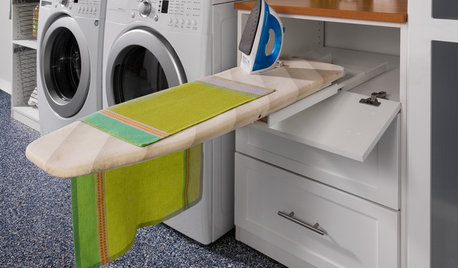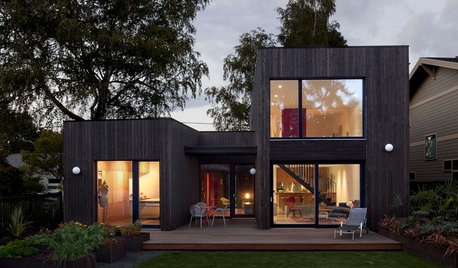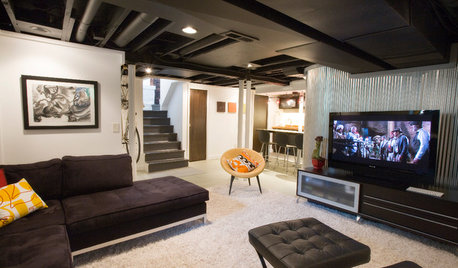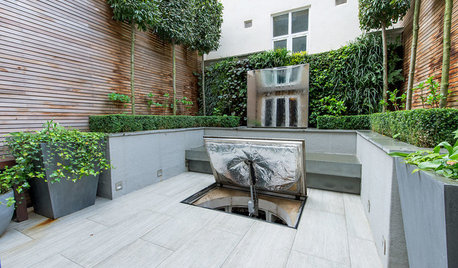super musty basement-can I combine new furnace with dehumidifier
chicagoerin
10 years ago
Related Stories

LAUNDRY ROOMSThe Cure for Houzz Envy: Laundry Room Touches Anyone Can Do
Make fluffing and folding more enjoyable by borrowing these ideas from beautifully designed laundry rooms
Full Story
LAUNDRY ROOMS8 Ways to Make the Most of Your Laundry Room
These super-practical laundry room additions can help lighten your load
Full Story
BASEMENTSDesign Workshop: Is It Time to Let Basements Become Extinct?
Costly and often unnecessary, basements may become obsolete — if they aren’t already. Here are responses to every reason to keep them around
Full Story
LIVING ROOMSBelow My Houzz: An Inviting Basement With Industrial Edge
Reconfiguring a cramped, damp basement opens up a new world of sleek, functional spaces
Full Story
BASEMENTSBasement of the Week: Fun for All Ages in Connecticut
Crafts, wine, billiards and ... soccer? Yup, this tricked-out family basement has room for all that and more
Full Story
REMODELING GUIDES10 Tips for Renovating Your Basement
A professional contractor shares her tips on what to consider before you commit to a basement remodel
Full Story
BASEMENTSBasement Becomes a Family-Friendly Lower Level
A renovation creates room for movie nights, overnight guests, crafts, Ping-Pong and more
Full Story
BASEMENTSWhat Lies Beneath: Cool Things to Build Underground
Ingenious designers are going below the surface in some amazing — and surprising — ways
Full Story
GREEN BUILDINGInsulation Basics: Heat, R-Value and the Building Envelope
Learn how heat moves through a home and the materials that can stop it, to make sure your insulation is as effective as you think
Full Story
SAVING WATER11 Ways to Save Water at Home
Whether you live in a drought-stricken area or just want to help preserve a precious resource, here are things you can do to use less water
Full Story






klem1
mike_home
Related Professionals
Champlin Solar Energy Systems · Herriman Solar Energy Systems · Mokena Solar Energy Systems · Oakland Solar Energy Systems · Rockledge Solar Energy Systems · Ashburn Home Automation & Home Media · Kissimmee Home Automation & Home Media · Lakewood Home Automation & Home Media · Pittsburgh Home Automation & Home Media · Pittsburgh Home Automation & Home Media · Ponte Vedra Beach Home Automation & Home Media · Skokie Home Automation & Home Media · St. Johns Home Automation & Home Media · South Euclid Home Automation & Home Media · Romeoville FireplaceschicagoerinOriginal Author
klem1
mike_home
mike_home
ionized_gw
chicagoerinOriginal Author
ionized_gw
lightbulbfury
ionized_gw